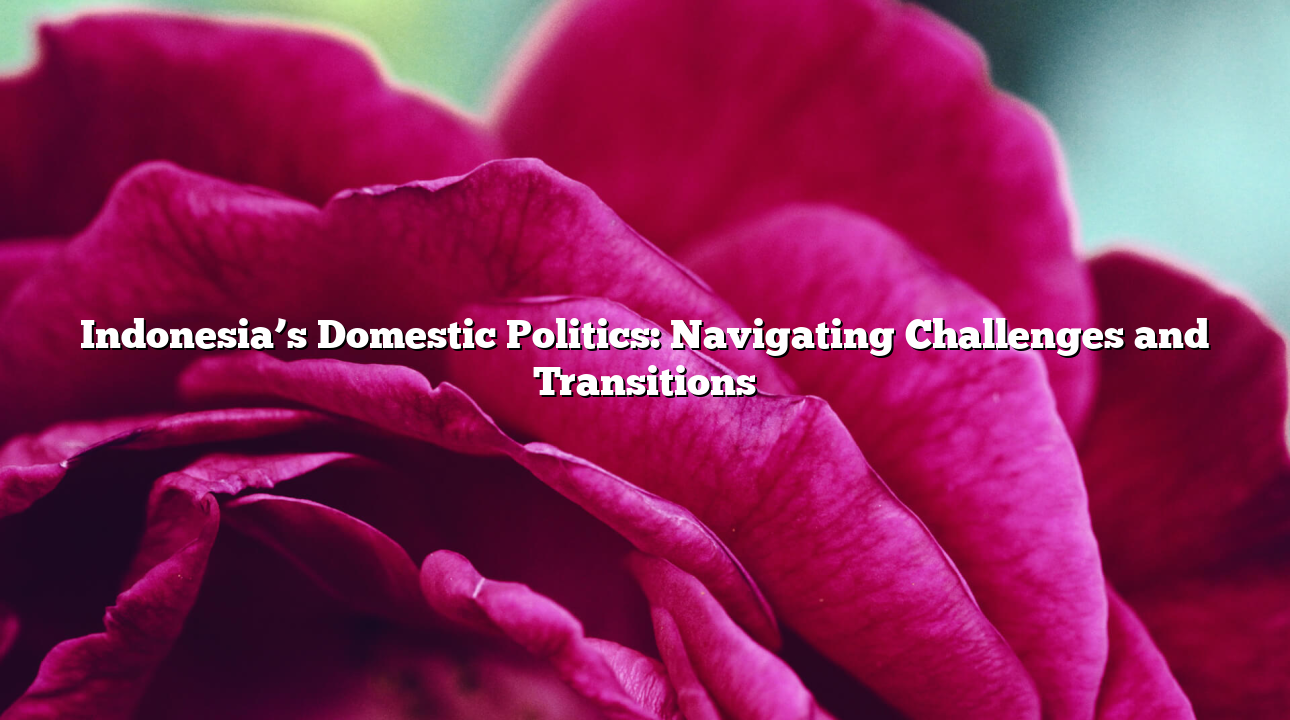Indonesia, the world’s third-largest democracy, continues to experience dynamic shifts in its domestic political landscape. With a population exceeding 270 million, the country plays a crucial role in Southeast Asia’s stability and development. Over the past few years, Indonesian politics has been characterized by a balance between democratic consolidation, social demands, and the government’s need to maintain national unity. The recent elections, coalition-building, and policy priorities maritim4d reflect not only the maturity of Indonesia’s democracy but also the challenges it must overcome.
One of the most significant aspects of Indonesia’s domestic politics is the peaceful transfer of power through democratic elections. This achievement highlights the strength of the nation’s political institutions compared to some other countries in the region. The presidential and legislative elections often attract significant public participation, with voter turnout remaining high. However, these elections also reveal deep political rivalries and ideological divides, particularly between nationalist and religious groups, which continue to shape political discourse.
Coalition politics remains another defining feature of Indonesia’s governance. Since no single political party has been able to secure a majority, presidents often rely on broad coalitions to pass legislation and implement their policies. While this approach ensures inclusiveness, it also creates compromises that sometimes slow down reform. Political parties in Indonesia are less ideological and more pragmatic, often shifting alliances based on political expediency rather than policy consistency. This can both stabilize and complicate decision-making processes in the government.
Domestic politics in Indonesia is also heavily influenced by public expectations regarding economic growth and social welfare. The government faces the challenge of balancing economic development with social equity, particularly as inequality persists between urban and rural areas. Infrastructure development, digital transformation, and investment policies are central to the government’s agenda, but they must be implemented in a way that benefits the wider population. Failure to meet these expectations often sparks political debate and criticism from opposition parties, civil society groups, and the media.
Religion also plays a significant role in shaping Indonesia’s political climate. While the nation is constitutionally secular, political actors frequently draw upon religious narratives to appeal to voters. This can sometimes lead to polarization and tension, especially during election campaigns. However, Indonesia has also demonstrated resilience by promoting tolerance and pluralism, which remain essential in managing its diverse society. Leaders must carefully balance religious sensitivities with the principles of inclusivity and national unity to avoid sectarian conflict.
Another pressing issue in Indonesian domestic politics is the fight against corruption. Despite progress made by the Corruption Eradication Commission (KPK), corruption remains a persistent problem at various levels of government. Public trust in political institutions often depends on how effectively the government addresses corruption scandals. Efforts to strengthen transparency, accountability, and judicial independence continue to be key demands from civil society organizations.
In recent years, Indonesia has also faced growing demands from younger generations who are more politically aware and active, thanks to social media. This demographic, which makes up a large portion of the electorate, has pushed for reforms related to climate change, education, digital rights, and freedom of expression. Their influence is reshaping how political campaigns are conducted, with parties increasingly turning to online platforms to engage voters.
Looking ahead, Indonesia’s domestic politics will be shaped by how the government and political parties manage these complex dynamics. Building effective coalitions, ensuring economic inclusivity, combating corruption, and promoting tolerance will be crucial in maintaining political stability. As the country continues its democratic journey, the ability of leaders to respond to public aspirations while safeguarding national unity will determine Indonesia’s political trajectory in the years to come.
In conclusion, Indonesia’s domestic politics represent a blend of achievements and challenges. The nation has made significant progress in strengthening democratic practices, yet issues such as corruption, inequality, and polarization remain obstacles. Nevertheless, Indonesia’s resilience and adaptability suggest that it will continue to find a path forward, reinforcing its role as a vibrant democracy in Asia.
